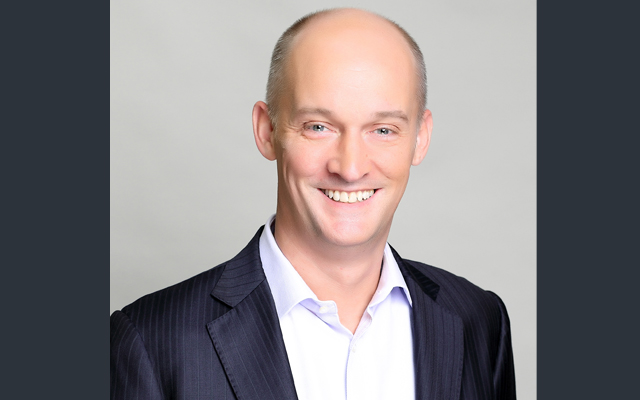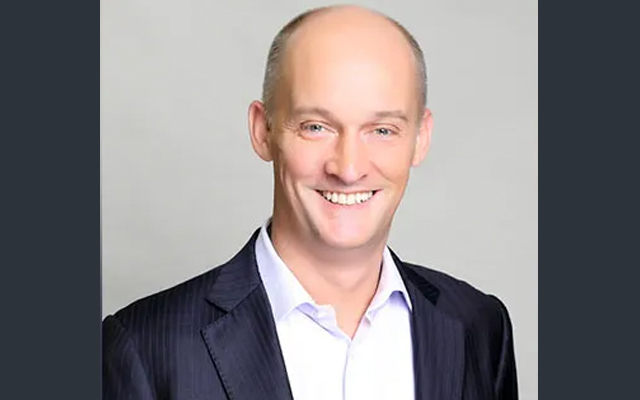While Hilton has braced its team for a rapid tourism rebound once the conditions are right, the pace of recovery today in some parts of Asia-Pacific has come as a surprise, which Ben George, senior vice president & commercial director for the region, likens to catching a helium balloon
 The world is opening up – how is this impacting Hilton properties across Asia-Pacific?
The world is opening up – how is this impacting Hilton properties across Asia-Pacific?
Broadly speaking, very well. Asia, as a word, is a minefield, as it suggests just one place when we know it is five different regions.
South-east Asia, India and Australasia are almost back to normal, with India and Australia slightly ahead of South-east Asia just because there is much more domestic business. In fact, this month we are back to 2019 levels in India and Australia.
But I must say that in the last three to four weeks, South-east Asia took a massive step forward. The catalyst has been the removal of Covid testings, which has given people a peace of mind, knowing that they would not get stuck somewhere because their results came out positive.
Japan, as usual, is more cautious. If you go back to the triple disasters in 2011 (when Japan was hit by earthquake, tsunami, and nuclear meltdown in March), it took time for confidence to return. So, we expect things to move a little slower in Japan. Restrictions have lifted across the country, and (domestic) leisure is strong. Corporate travel is starting to come back.
That leaves China. China had a really good year in 2021, when tourism was broadly normal. Restrictions kicked in around the Olympics (Olympic Games Beijing 2022, February 4 to 20) and going into the government meetings in March, and now China is facing challenges with Omicron. We are hoping that restrictions would relax in late-May, and have that lead to a positive 2H2022.
What we are seeing now is played out again and again in the Americas, Europe and Asia. You see leisure starting first, with staycations near home, and then gradually getting bigger and wider with corporate travel coming back. Next, small meetings will return and then large meetings. In Australia now, for example, large meetings have started to come back.
South-east Asia MICE business will grow at a CAGR of about 8.6 per cent over the next few years to 2025 – that’s incredibly positive.
I had 60 people here (in Singapore for a Hilton internal meeting) plus 50 joining us virtually from China. It was the first time I got my leadership team together in the last 2.5 years. Hilton has some really big internal events lined up, and we see more and more companies are doing that now because they have not done stuff together with their teams in 2.5 years, so everybody is really keen to get out and come together.
Is the pace of recovery anything like what you’ve expected?
Back in 2020, it was as if everything stopped overnight, and it was nothing like we’ve ever seen before.
Then, as vaccination rates climbed, we thought things would be good; that did not kick off travel as we thought it would.
When in and out PCR tests changed to ARTs, that improved things. When all testings stopped, that was the turning point.
Things are coming back up so fast. We have been telling our hotels that when business comes back, it will come back very fast. Even so, the pace of recovery was ahead of what we thought!
We say that in 2020 we were trying to catch a falling knife; this year we are trying to catch a helium balloon (laughs).
That’s really positive.
Hilton gained extensive media attention for the opening of its largest hotel in Asia-Pacific, here in Singapore. It is a massive hotel with many event spaces. Will there be another massive Hilton with this many function rooms in the pipeline for the region?
Yes. There are a couple of big ones that we are really proud of. They came around similar timings actually.
We opened Conrad Shanghai in January this year, which is our second largest Conrad globally. It has 2,500m2 of meeting space and 728 guestrooms. It is a beautiful property in a great location, and is doing really well.
From a Hilton perspective, we opened (this month) the Hilton Hotels Embassy Manyata Complex in Bangalore, whose event space is double the size of Hilton Orchard Singapore. There are about 5,000m2 of meetings space and about 600 guestrooms (266 keys at Hilton Bengaluru Embassy Manyata Business Park and 353 keys at Hilton Garden Inn Bengaluru Embassy Manyata Business Park).
That is our first convention hotel in India. The complex has both a Hilton and Hilton Garden Inn so it covers price points across both ends of the market – great for large residential meetings.
There is no debate that hybrid events are here to stay. How else do you expect meetings and events to evolve in a post-lockdown world?
Well, can we have that debate? I’m not with that.
First, I think this is a question in time. I said earlier that I’ve just had my leadership meeting, and it was a hybrid event not by design. I was hoping to have everybody together in Singapore, but I had 50 leaders in China who could not travel. So, the hybrid format was needed.
Our hotels can do hybrid events very well, but these events are complex and require a significant amount of effort not just in terms of technology and setup. You need multiple cameras, and to test that technology well ahead to make sure everything works. Even the speakers have to have a set of skills that is different and be really in the game to engage with people who are not in the physical room with them.
People underestimate the complexity of hybrid events.
Second, we want to be in the same room. People thrive on interaction. The energy I felt from being in the same room as everybody was brilliant and infectious. It was so much fun to be around people. I don’t think we will ever get away from that. Person-to-person contact is ultimately what our business is in for.
Hybrid events will be around for as long as they are needed, because of restrictions. When people can travel again, they will want to get back to face-to-face events.
Now, there may be a profit and loss question. For example, are you going to fly someone from Australia or New Zealand to New York for a three-day meeting? But that sort of question existed even before the pandemic.
With these views in mind, how is Hilton evolving its hardware and services to better support corporate event clients today and tomorrow?
One of our responsibilities is to ensure our customers are comfortable, safe and secure when they are with us. In 2020 we launched Hilton CleanStay and Hilton EventReady, which were predominantly about what we do to ensure customers’ well-being. We will continue to (implement enhanced cleaning procedures) to give customers peace of mind, but we may dial back on the vernacular around clean stays because this is now expected.
A meeting room is a meeting room, but the quality of event technology is evolving. If hybrid events do stay, the technology to support such events will get better and our venues will facilitate that.
That’s just the hardware and service side of things. On the other side, how do we make things easier for customers? We are used to booking bedrooms online, but customers don’t traditionally book meeting rooms online. We have started to expose our meeting room inventory online.
Now, would you be able to book a function room for a wedding with 500 people and lots of complexities? That would probably be a step too far, and I don’t think people want that. They would want an actual conversation with the venue provider. However, they would want to be able to look online and see that this Hilton hotel can take weddings, and see great visuals of the space.
If you want to book (small meetings), well, you can start doing that online. At the end of 2021, we launched a dedicated call centre where there are people to talk customers through hotel options based on their event needs. This is now available in 28 hotels across South-east Asia and Australasia. This service is available both online and via the call centre. We have to be omni-channel to make life easier for event bookers.
Flexibility in space usage and contracts was something that many event planners wanted in the early part of event resumption during the pandemic. Now that more of the world is opening up with certainty, how do you see that level of flexibility changing?
It won’t, that’s my short answer.
One of the things we did really well at the start of the pandemic is to be one of the first hotel companies to not hold people to cancellations. If you have to cancel for whatever reason, fine, don’t worry about it. If you are a Hilton Honors member and your tier status is expiring end of this year, don’t worry, we have a moratorium on the expiration of points or tier status.
We want a long relationship with our customers. You can only have that if there is trust on both ends, there is peace of mind, and there is ease in transactions.
The days of draconian clauses in contracts are over.
Bleisure is not new, but the blend of business and leisure is stronger than ever today, with many business travellers taking the opportunity to extend their trip to rest and relax alone or with loved ones. What are your hotels doing to cater to this intensifying bleisure demand?
Bleisure is a catchword of the moment, but it isn’t something we have not known of before. If you go back eight or 10 years ago, we were already thinking about persuading people to go for a meeting and then stay on over the weekend after – or before the event.
It is a dream of hoteliers to maximise business.
But take a step back and think of ourselves – after a week of business travel, all you want to do is just get back home.
With the Covid pandemic, because there has been quite an investment from people who go away, either they’ve had to do quarantine or testing, they want to make the most of the trip and stay on for a few more days. So, I think, bleisure is an opportunity now.
How long it will stay like this? Well, normalcy is coming back, so we may well revert to the travel trends we saw in 2019. That does not mean there is no more bleisure opportunity. We have the Hilton Honors app, which inspires travel dreams and shows experiences that our guests can enjoy in the destination where they will be travelling to for meetings. So, instead of just staying in the destination for three days for the meeting, the traveller may end up staying six as a result of our CRM and recommendations.
We curate these experiences with destination partners. Some of the things we did pre-pandemic included a chance for Hilton Honors members to use their points to attend a honbasho (sumo tournament) in Tokyo and meet sumo wrestlers, or join a sake tour around Osaka. We also have a relationship with the McLaren Formula 1 team, and customers have been able to use their points to buy a package in Shanghai.
Editor’s note: Hilton has clarified that Conrad Shanghai has 2,500m2 of meeting space, not 316m2 as it was initially stated; and that it is Hilton Hotels Embassy Manyata Complex’s event space that is double the size of Hilton Orchard Singapore’s, not in terms of overall facilities





















